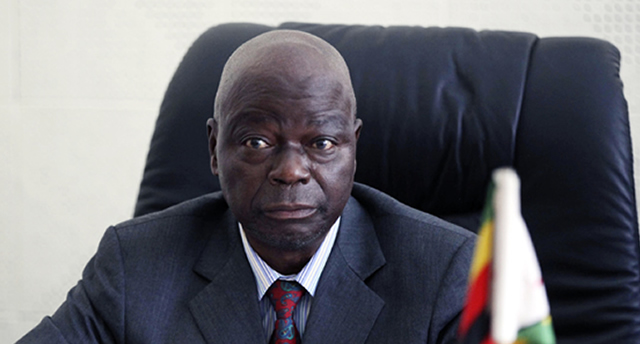By Tafara Shumba
When President Robert Mugabe announced his cabinet soon after his party’s resounding victory in the July 2013 ballot, most people derisively laughed at the mention of Dzikamai Mavhaire as the Minister of Energy and Power Development. They thought he was a square peg in a round hole.

But what is currently obtaining in the energy sector proves Mavhaire’s critics wrong. The minister has proved very practical and oriented to action rather than to words coated in sugar.
When asked if the nation was going to have adequate power to implement programmes under the Zimbabwe Agenda for Sustainable Socio-Economic Transformation (Zim Asset), Mavhaire truthfully said he could not answer the question with a resounding yes. “What I can say is the situation will have drastically improved by 2018,” said Mavhaire.
That response attracted nasty headlines with some newspapers calling him a clueless minister. It’s strange that some people are so habituated to lies that they do not even listen to a person who chooses to be honest. The honourable minister was indeed not sure because he had seen the magnitude of the mess that his predecessor had left in the ministry. True to his promise, there are indeed some signs that point to an improvement. Indeed, and undeniably, the power supply situation will have considerably improved by 2018.
In a short stint at the helm of the energy ministry, Mavhaire oversaw the commissioning of the Kariba South Hydro Power Station. Hardened cynics thought the project would never see the light of the day. The Herald reported recently that expansion work at the Kariba South Hydro Power Station would officially begin next month as the China Exim Bank would release the funding in the region of US$319.5 million.
As a practical man, Mavhaire ensured that most of the preconditions set by the financiers to kick-start the project were met. He ensured that the principal conditions – the formation of Kariba Hydro Power Company and ratification of the loan agreement – were expeditiously done.
And in line with one of the fundamental objectives of the Zimbabwe Agenda for Sustainable Socio-Economic Transformation (Zim Asset) of increasing power generation and accessibility to electricity, the new project will add 300megawatts to the national grid. The power station is currently generating 750 megawatts.
The expansion work is not a small feat for a country that is reeling under economic sanctions. After a barrage of media onslaught, Mavhaire told journalists that: “You want to tarnish our image but at the end of the day you will be ashamed.” Certainly the journalists who saw a clueless minister in Mavhaire must be ashamed now.
With the media onslaught on the minister soon after his appointment, yours truly has been keeping a keen eye on him. In just three months at the helm of the energy ministry, some had already judged him. They never did that to Elton Mangoma and his handpicked boards who dismally failed to steer the parastatals from the plethora of challenges bedevilling them in their four year stint at the helm of the same entities.
What characterised Mangoma’s reign were boards that issued out loans to members when workers went for months without salaries. We saw boards that unlawfully fired managers on insubstantial reasons that bordered on political victimisation. We had boards that connived to rip off the state enterprises of $2 million in salaries and allowances for Dennis Magaya and his team.
Mavhaire was quick to realise that with the calibre of the boards, he would not be able to drive the nation’s economic vision as espoused in ZimAsset. He knew the boards were serving at the pleasure of Mangoma, thus he dissolved them. He reinstated managers who had been dismissed by Mangoma and replaced by some engineers who had run away from the country at the peak of Zimbabwe’s hardships. He put a stop to Magaya’s ‘honeymoon’ because he was not adding any value to the parastatals.
In just three months at the ministry, Mavhaire oversaw the commissioning of, among other projects, the solar power plant, smart prepaid meters and a solar geyser programme for rural schools and clinics.
Some people fail to understand that it’s not fancy qualifications that make a good minister. Ordinarily A students who study sciences end up being engineers and doctors. The B students usually study commercials and proceed to do business management courses and these become the Chief Executive Officers (CEO) who employ and supervise the engineers and doctors. The C students usually study political science and end up being politicians who appoint and supervise the CEOs. Those who fail to make it at school end up being the TB Joshuas of this world who control our Tsvangirais.
Mavhaire should now make sure that the government fulfils its funding obligation of US$35.4 million for the Kariba South Hydro Power Station project. The private sector must be encouraged to chip in as well. Zesa Holdings is owed almost US$500m which, if recouped, can assist government to meet its funding obligations of the project. Funding of this project and many other power generation projects in the pipeline should be uppermost on the priority list of government if the economy is to be invigorated.
The sector under the armpit of Mavhaire directly influences industry and subsequently the economy. Expensive and erratic supply of electricity was fingered in some researches as one of the chief factors that caused company closures. The power utility company is currently generating around 1,200MW against the national peak demand of 2,200MW.
There is serious need for more power generation stations. Funding should be hunted for the Hwange Thermal Power Station where the State Procurement Board (SPB) has already approved the awarding of the tender to Sinohydro. Other projects that Mavhaire could start looking at are the joint venture with Zambia for the US$2.5 billion Batoka Gorge Power Station, Rio Zim’s Gokwe North, Gaerezi, Sengwa Power Plant and the solar-based generations in Zvishavane and Plumtree.






